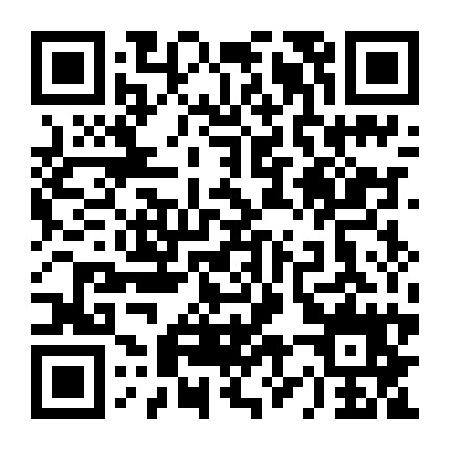Passage Two
If you happened to be watching NBC on the first Sunday morning in August last summer, you would have seen something curious. There, on the set of Meet the Press, the host, David Gregory, was interviewing a guest who made a forceful case that the U. S. economy had become “very distorted”. In the wake of the recession, this guest explained, high-income individuals, large banks, and major corporations had experienced a “ significant recovery ” ; the rest of the economy, by contrast — including small businesses and “ a very significant amount of the labor force ” 一 was stuck and still struggling. What we were seeing, he argued, was not a single economy at all, but rather “ fundamentally two separate types of economy,” increasingly distinct and divergent.
This diagnosis, though alarming, was hardly unique: drawing attention to the divide between the wealthy and everyone else has long been standard fare on the left. (The idea of “two Americas” was a central theme of John Edwards’s 2004 and 2008 presidential runs. ) What made the argument striking in this instance was that it was being offered by none other than the former five-term Federal Reserve Chairman Alan Greenspan: iconic libertarian, preeminent defender of the free market, and (at least until recently) the nation’s foremost devotee of Ayn Rand. When the high priest of capitalism himself is declaring the growth in economic inequality a national crisis, something has gone very, very wrong.
This widening gap between the rich and non-rich has been evident for years. In a 2005 report to investors, for instance, three analysts at Citigroup advised that “ the World is dividing into two blocs — the Plutonomy and the rest”. In a plutonomy there is no such animal as “the U. S. consumer” or “the UK consumer”,or indeed “the Russian consumer”. There are rich consumers, few in number, but disproportionate in the gigantic slice of income and consumption they take. There are the rest, the “non-rich”,the multitudinous many, but only accounting for surprisingly small bites of the national pie.
Before the recession, it was relatively easy to ignore this concentration of wealth among an elite few. The wondrous inventions of the modem economy — Google, Amazon, the iPhone broadly improved the lives of middle-class consumers, even as they made a tiny subset of entrepreneurs hugely wealthy. And the less-wondrous inventions — particularly the explosion of subprime credit — helped mask the rise of income inequality for many of those whose earnings were stagnant. But the financial crisis and its long, dismal aftermath have changed all that. A multi-billion-dollar bailout and Wall Street’s swift, subsequent reinstatement of gargantuan bonuses have inspired a narrative of parasitic bankers and other elites rigging the game for their own benefit. And this, in turn, has led to wider — and not unreasonable — fears that we are living in not merely a plutonomy, but a plutocracy, in which the rich display outsize political influence, narrowly self-interested motives, and a casual indifference to anyone outside their own rarefied economic bubble.
46. According to the passage, the U. S. economy .
A. fares quite well
B. has completely recovered from the economic recession
C. has its own problems
D. is lagging behind other industrial economies
47. Which of the following statements about today’s super-elite would the passage support?
A. Today’s plutocrats are the hereditary elite.
B. Today’s super-rich are increasingly a nation unto themselves.
C. They are the deserving winners of a tough economic competition.
D. They are worried about the social and political consequences of rising income inequality.
48. What can be said of modern technological innovations?
A. They have lifted many people into the middle class.
B. They have narrowed the gap between the rich and the non-rich.
C. They have led to a rise of income inequality.
D. They have benefited the general public.
49. The author seems to suggest that the financial crisis and its aftermath •
A. have compromised the rich with the non-rich
B. have enriched the plutocratic elite
C. have put Americans on the alert for too much power the rich possess
D. have enlarged the gap between the rich and non-rich
50. The primary purpose of the passage is to .
A. present the financial imbalance in the U. S.
B. display sympathy for the working class
C. criticize the super-elite of the United States
D. appreciate the merits of the super rich in the U. S.
考博必备!历年真题及答案
考博精品好课,就选新东方!

 资料下载
资料下载
【必看】考博英语词汇10000例精解
发布时间:2020-09-02关注新东方在线服务号
回复【10000】免费获取
医学考博英语作文核心基础词汇整理
发布时间:2020-04-15关注新东方在线服务号
回复【医学考博】获取
医学考博英语阅读理解练习资料
发布时间:2020-04-15关注新东方在线服务号
回复【医学考博】获取
法学考博英语高频词汇word版
发布时间:2020-04-15关注新东方在线服务号
回复【医学考博】获取
医学博士英语统考真题及解析
发布时间:2019-12-26关注新东方在线服务号
回复【考博真题】获取
全国医学博士外语统一考试真题
发布时间:2019-12-26关注新东方在线服务号
回复【考博真题】获取
中科院考博英语复习备考实战经验分享
发布时间:2019-12-26关注新东方在线服务号
回复【考博经验】获取
中科院考博英语真题练习资料
发布时间:2019-12-26关注新东方在线服务号
回复【考博真题】获取

关注新东方在线服务号
关注新东方在线服务号,
免费获取考博必看干货资料

 推荐阅读
推荐阅读
沈阳工业大学2022年博士研究生招生考试英语真题B卷
来源 : 沈阳工业大学 2022-12-26 16:19:18 关键字 : 沈阳工业大学2022博士英语真题
沈阳工业大学2022年博士研究生招生考试英语真题A卷
来源 : 沈阳工业大学 2022-12-26 16:18:19 关键字 : 沈阳工业大学2022博士英语真题
沈阳工业大学2021年博士研究生招生考试英语真题B卷
来源 : 沈阳工业大学 2022-12-26 16:09:06 关键字 : 沈阳工业大学2021博士英语真题
沈阳工业大学2021年博士研究生招生考试英语真题试卷A卷
来源 : 沈阳工业大学 2022-12-26 16:07:31 关键字 : 沈阳工业大学2021博士英语真题
沈阳工业大学2020年博士研究生招生考试英语真题试卷
来源 : 沈阳工业大学 2022-12-26 16:04:42 关键字 : 沈阳工业大学2020年博士英语真题


 考博好课推荐
考博好课推荐
基础薄弱,备考迷茫,送纸质资料
价格 : ¥2280元
资深教师,教学简明,直接有效!
价格 : 0元
 资料下载
资料下载
关注新东方在线服务号
回复【10000】免费获取
关注新东方在线服务号
回复【医学考博】获取
关注新东方在线服务号
回复【医学考博】获取
关注新东方在线服务号
回复【医学考博】获取
关注新东方在线服务号
回复【考博真题】获取
关注新东方在线服务号
回复【考博真题】获取
关注新东方在线服务号
回复【考博经验】获取
关注新东方在线服务号
回复【考博真题】获取

 阅读排行榜
阅读排行榜
 相关内容
相关内容